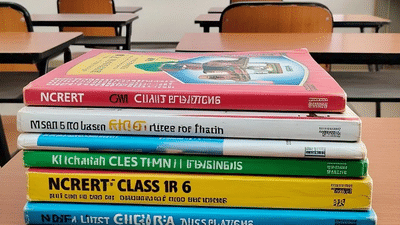
The National Council of Educational Research and Training (NCERT) has come under fire for renaming several school textbooks — including English medium books — using Hindi terms written in Roman script. This move, made under the implementation of the New Education Policy (NEP), has triggered protests, particularly from Tamil Nadu and Kerala, who view it as an attempt to impose Hindi on non-Hindi-speaking regions.
What Has Changed?Several English books have been renamed with Hindi words. Here's a look at the new names that have drawn attention:
Tamil Nadu, which has consistently resisted the idea of Hindi imposition, has renewed its protest against this naming strategy. The Kerala government has now also joined the dissent, expressing concerns about linguistic inclusivity and the cultural relevance of such changes for non-Hindi-speaking students.
The criticism centers around the idea that even English textbooks now carry Hindi names, which, according to critics, could alienate students in states where Hindi is not widely spoken or understood.
NCERT’s ResponseA senior NCERT official defended the changes, stating that the books with these names have already been in use for two years without controversy. The names, according to the council, are inspired by Indian classical instruments and ragas, such as Veena, Tabla, and Poorvi, intended to create a stronger connection between students and Indian heritage.
NCERT emphasized that the naming is aligned with the NEP’s objective of cultural integration and that early feedback from educators and students has been positive.
The Debate ContinuesDespite NCERT's justifications, the issue has sparked a wider national conversation about linguistic diversity, regional representation, and the balance between cultural identity and inclusivity in education. The controversy may gain further traction as more states weigh in on the matter.